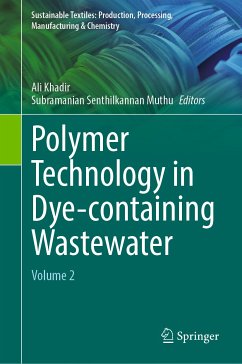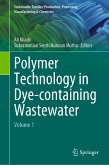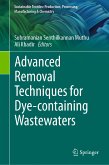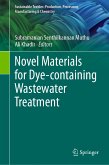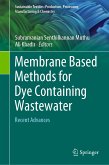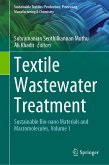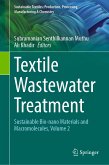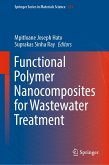The textile industry is among the most significant polluters of water owing to the existence of various types of pollution streams generated by printing processes and textile dyeing. The book begins by documenting various types of Poly (vinyl alcohol) PVA-derived adsorbents (gels, fibers, films, composite particles), membranes, and photocatalysts in combination with conventional adsorbents, polymers, carbonaceous and metallic materials and their use in elimination of dyes from contaminated water. It follows by discussing different properties of nanocomposite membranes such as hydrogels, xerogels and aerogels used in this purpose. Also, different polymer - based adsorbents such as ceramic adsorbent, clay, hydrogels, starch, cellulose, chitosan, alginates, etc are presented in this book.
Dieser Download kann aus rechtlichen Gründen nur mit Rechnungsadresse in A, B, BG, CY, CZ, D, DK, EW, E, FIN, F, GR, HR, H, IRL, I, LT, L, LR, M, NL, PL, P, R, S, SLO, SK ausgeliefert werden.

